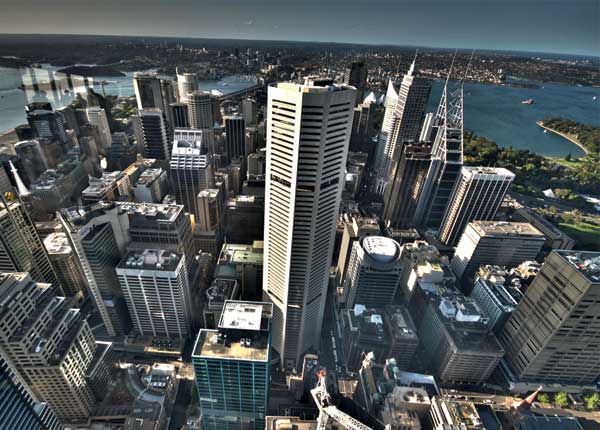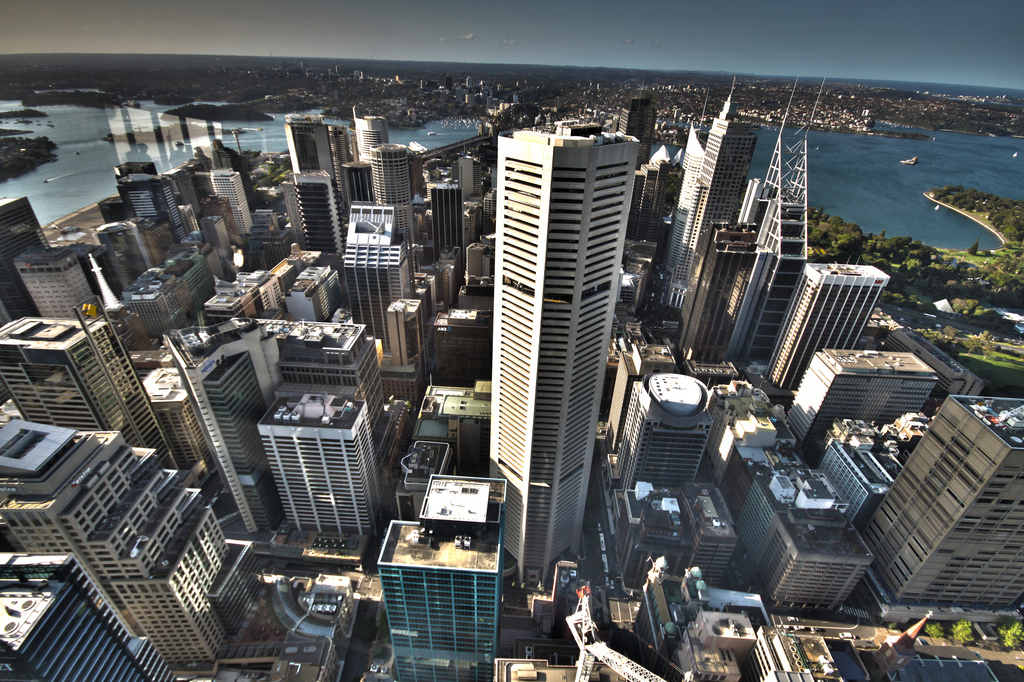
City of Sydney Lord Mayor Clover Moore’s big push to make the centre of Australia’s largest metropolis as easy to live in as it is to work and shop there has prompted the property development lobby to push for businesses that pay commercial rates to greatly increase their vote at council elections.
Despite being entitled to cast a ballot, eligible businesses and commercial ratepayers are still largely ignoring council elections leading to claims that policies are unfairly favouring residents in New South Wales.
In the centre of Sydney, the political gloves have come off over business voter turnout.
As one of the few local governments in the state which extracts a very healthy cashflow from enterprises whose operators – for the most part – reside outside of its boundaries, business groups are again mounting a push for a bigger say on the electoral process because of the money they pay to the City of Sydney.
“In the City of Sydney 78.5 per cent of rates come from commercial business owners, yet less than two per cent of the votes in the last local government election came from this group. Clearly there is something wrong with the voting process if non-residents are not voting,” said Chris Johnson, the chief executive of Urban Taskforce which advocates on behalf of developers.
The simple fact is that the vast majority of businesses simply don’t enrol to vote and even fewer actually turn up on the day. Now business and property lobby groups are trying to reverse their apparent apathy among business operators and flex some electoral muscle.
The push by Urban Taskforce to secure a bigger say for businesses is based on what they say is a sustained trend that will make Sydney “a more urban city” – with increased population density – that has employment concentrated in town centres that is combined with “more shops and amenities serving apartment dwellers.”
The developer group claims that the input of the business community into the governance of these areas “will be essential” and that the best way “for this to occur is if non-residential business owners can vote and the voting system encourages them to do this.”
The group says it supports “comments made by a number of City of Sydney councillors – primarily rising Liberals star Edward Mandla and Christine Forster, who is Prime Minister Tony Abbott’s sister – to a recent Upper House inquiry that businesses were effectively denied a vote and is urging businesses to exercise their democratic right in other big suburban centres.
“There needs to be an advocacy campaign to maximise the number of non-resident businesses voting in the city of Sydney and more widely in urban centres like Liverpool, Parramatta and North Sydney,”
For property developers seeking to build thousands of new apartments in and around the Sydney CBD and other town centres, the stakes are high, and not just for permissible building heights.
A core ambition for developers and non-resident businesses is being able to have a greater say over the development and design processes that are often influenced by well organised residents who turn out in droves to vote and directly influence the political process when businesses don’t.
As the residential population of urban centres increases, so too does the resident voter base and its potential to further diminish what little business electoral influence there may be.
A particular gripe of business owners and operators in more densely populated areas is that complaints from residents can hit or restrict otherwise reasonable commercial operations without businesses getting a say.
In some of Sydney’s more central suburbs, friction between pre-existing businesses like pubs, music venues and food outlets and newer, often more gentrified inhabitants has become increasingly common as residents seek to restrict the activities of businesses for their own comfort.
Common complaints include noise, cooking smells and early and late trading hours that have on some occasions ended up in court as the demographics of inner suburbs change.
Now, with greater numbers of people wanting to live in rapidly redeveloping city itself, Urban Taskforce says that there needs to be an electoral voice for business.
“The state government and urban councils need to actively nurture the business vote to balance that of residents. In this way we will get more jobs in centres as councils will see the benefits of keeping this voting group positive about the development of their own urban centre,” Mr Johnston said.
“Sydney siders are increasingly moving to urban living in centres with cafes, gymnasiums, office buildings and retail shops and the lifestyle needs the businesses to feel part of the community. They add to the vitality, they pay significant rates to the local council and they should be encouraged to vote in local government elections.”
However the city living push is also producing some confronting realities for the NSW state government. Chief among them is access to schools for more central residents with children whose options are diminishing as available places fill-up and ‘feeder area’ boundary restrictions are more strictly enforced.
After decades of successive school closures and land sales by the Department of Education, the O’Farrell government is under increasing pressure to build a new inner city high school to cater for surging demand thanks to increased number of families forgoing a suburban lifestyle.
With almost no new land available, many now expect that the government will be forced to build or redevelop an existing high rise structure.
Comment below to have your say on this story.
If you have a news story or tip-off, get in touch at editorial@governmentnews.com.au.
Sign up to the Government News newsletter
Most read
Scathing report finds little has changed at PwC
Qld council welcomes progress on massive battery system
Inquiry to consider how federal govt can address councils’ sustainability issues
‘Local’ procurement turns out not to be so local, committee hears
Another report finds local government falling down on cyber security

